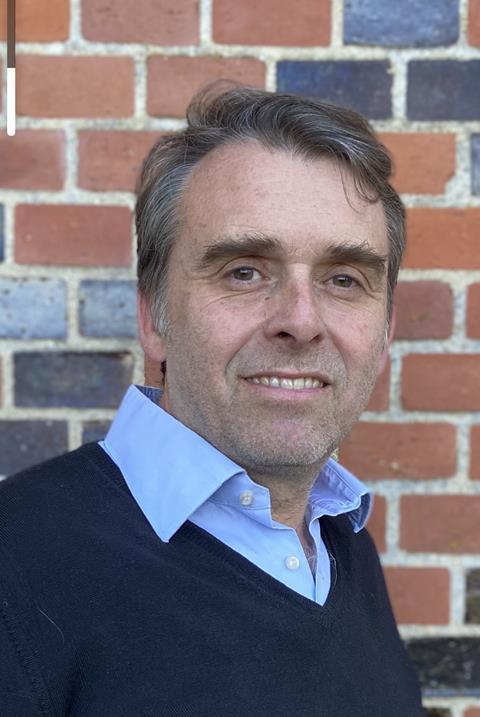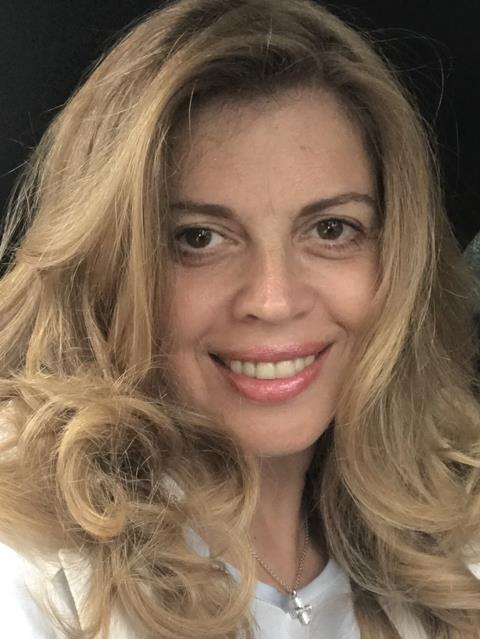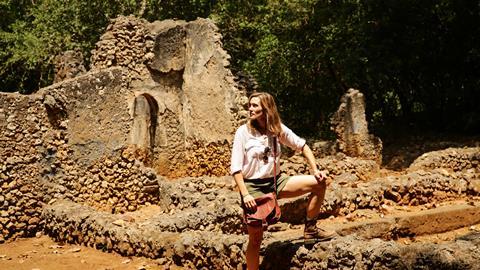Launched in April last year during the first lockdown, the pan-European group has been steadily acquiring production firms and has now gained a foothold in the UK with the acquisition of Wag TV
The launch of pan-European producer group Asacha Media last year was understandably overshadowed by the escalating Covid-19 crisis.
Backed by private investor Oaktree Capital Management, the newly formed group debuted at the height of the first lockdown in April 2020 with the acquisition of majority stakes in two Italian firms – drama and film producer Picomedia and factual and kids’ indie Stand By Me – as well as French scripted producer Mintee Studio.
And Asacha entered the UK market in February this year with the acquisition of veteran indie Wag TV, producer of shows such as Combat Dealers for Quest and Science Channel’s What On Earth?. More deals are planned as it seeks to build its footprint across Europe in the coming years.

Co-founder Gaspard de Chavagnac says that Asacha is looking to build a “balanced” group throughout Europe, and that each acquisition has been carefully planned in accordance with the larger business plan. “We don’t want to be a huge player in one market, but a balanced player in many markets,” he says over Zoom from Paris, where Asacha is based.
As such, the idea is that Asacha-owned production companies will work together to help get projects off the ground, rather than compete on their home turf. “We don’t want to create a lot of labels in the same markets that will compete against each other,” explains fellow co-founder Marina Williams.
It was this thinking that appealed to Wag TV, which had been approached by many buyers over its 21-year history, according to chief operating officer Steven Green.
“The reason we ended up going with Asacha is that we wanted to part of something bigger, but have the opportunity to work with other companies in the group,” says Green. “That’s something I don’t think you get inside other big media groups – it’s all about competing against each other for your earn-out.”
Green, who will step up to managing director when Wag founder and chief executive Martin Durkin stands down at the end of 2021, says the indie was keen to expand into Europe because it already sells into the UK and US markets.
Wag is already talking to Asacha-owned Italian producer Stand By Me about a potential co-production. “If you’re going to bring creatives together to sit around a table in a media group, it’s nice to work together,” says Green. “You should be exchanging ideas, not competing.”
De Chavagnac is a former chief executive of Zodiak France and managing director of Fremantle France, while Williams was chief operating officer of international operations at Endemol Shine Group, where she oversaw business across central and eastern Europe, India, the Middle East and Africa.
The third founding co-partner is Marc Antoine d’Halluin, currently chief executive of Middle Eastern broadcaster MBC Group and former chief exec of Zodiak Media Group, who has a non-exec role as vice-chairman. He oversaw Zodiak’s merger with Banijay in 2016.
The trio first came into contact in the early 2000s when they had a “collaborative and positive” experience working together in senior roles at now defunct US channel Fox Kids, says Williams, and have since gained “complementary” skills working in production across international markets.
“Thanks to the streamers, people will watch content in any language”
Marina Williams, co-founder
With such an experienced team behind Asacha, it is easy to draw comparisons with Italy’s De Agostini Group, which acquired producers across Europe to launch Zodiak back in 2007. The group became a key player in the UK when it bought RDF three years later.
Williams says the idea to launch Asacha came about two years before its establishment, when it became clear that there was “a big transition” happening at streamers and traditional broadcasters, who were focusing more and more on original European, non-English-language content.
“Language has become less of a barrier,” she adds. “Thanks to the streamers, people will watch content in any language with subtitles or dubbed.”
Indeed, Netflix has hiked its spend in Europe in recent years, funding originals such as France’s Lupin and Spain’s La Casa De Papel (Money Heist).
Disney recently revealed that it is ramping up local-language productions in Europe to help fuel Disney+, with 50 original shows expected by 2024 from countries such as France, Germany, Italy and the Netherlands, while in the UK, Channel 4-backed AVoD Walter Presents has carved out an audience by offering high-end, local-language dramas.
Harnessing local talent
Asacha aims to capture a share of these productions by using its founders’ experience to help local talent finance and package larger European projects. The company will also help to fine-tune ideas so they meet the needs of the international platforms, and advise on the commercial negotiations.
“In five years, we will be in up to 10 key countries in Europe”
Gaspard de Chavagnac, co-founder
In the immediate future, Asacha plans to expand through a mix of acquisitions, joint ventures and start-ups in France, the UK, Spain and Germany. Then it will target growth markets such as Russia, eastern Europe and Turkey. “In five years, we will be in up to 10 key countries in Europe,” says De Chavagnac.
In each territory, the ambition is that its producers will turn over €30m-€60m (£26m-£52m) a year between them. It would take several deals of scale to achieve this in the UK.
Oaktree has invested an initial €100m (£86m), but that’s just the start, according to De Chavagnac. “That is the first amount we agreed on to start the business, but obviously our project is much bigger than €100m in terms of investment,” he says. All of the founding partners and bosses of the acquired production companies are also investing in Asacha, handing them shares in the parent business at an early stage.
Some might argue that Asacha is too late to the consolidation game, given that so many production companies have already been scooped up by large groups such as Banijay, All3Media, Fremantle, ITV Studios and France’s Mediawan.
“For sure, there has been a lot of consolidation, but it has not always been very successful,” says De Chavagnac. “We feel that you should never forget this is about talent and people. This is why size as a whole is not our main criteria. From our past experience in other big groups, we know that when you get too big, you lose talent.”

Wag might at first glance look a slightly low-key UK acquisition for a company bidding to become a European superpower, but Williams says the streaming platforms’ growing interest in factual programming sparked Asacha’s interest in the indie, as did its catalogue of IP and expertise in co-production, financing and distribution.
Future Asacha acquisitions in the UK are likely to focus on the drama space rather than factual, however, in line with its strategy of avoiding domestic competition.
Asacha’s central team itself will remain “very light” and dedicated to helping its production companies grow “bigger and faster”, says De Chavagnac. It is also planning to build a small distribution infrastructure to sell its own content, and to help package and finance programmes.
Flexible approach
Williams says Asacha will be flexible about the commercial deals it strikes with streamers and broadcasters and won’t always insist on holding on to IP. “I don’t think you can decide that you want to own IP on all your content – you need to be very diverse, very agile and you have to work with all the available propositions in the market,” she adds.
This will manifest in some programming being financed and owned as well as Asacha-owned producers working as guns-for-hire in other instances.

For Williams, this is all about diversifying risk. “Sometimes you give up your IP rights, but if you work with big budgets on big shows that offer bonuses and premiums, it is a substantial contribution to the business – and we should not ignore it.”
Covid-19 has meant delays to a few productions from Asacha group companies and rises in costs to meet safe shooting guidelines, say De Chavagnac and Williams. But business is ongoing – Italy’s Stand By Me, for example, has unveiled new Netflix documentary Sharing The Wisdom Of Time, based on a book by Pope Francis.
The Asacha bosses insist that the pandemic hasn’t slowed their ambitions for growth and deal-making, despite the lack of physical markets. While unable to travel to events such as this month’s Mip TV, UK-based Williams has been able to meet people here to talk business – often outside in parks (“Hopefully, it’s going to get warmer soon,” she says.) De Chavagnac, meanwhile, has been able to travel between France and Italy for meetings.
Encouragingly, neither say they have been put off investing in the UK market by Brexit. “English-language content is still popular – and I think every market has its own challenges,” says Williams.
Asacha is likely to learn much more about these individual market challenges – and opportunities – as it pursues its pan-European ambitions in the coming years.
































No comments yet